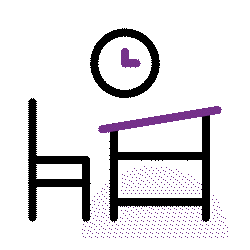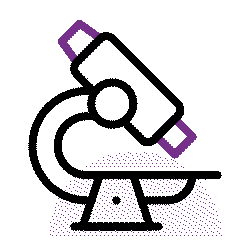
Education

FAR’s Education Program takes a holistic approach by providing educational opportunity to children and youth, strengthening the capacity of educators, enhancing accessibility to educational opportunity, and through the provision of educational resources.
FAR contributes to making decent education more equitable for all in Armenia, which has the potential to be life-changing and transformative on both the individual and collective levels.

Many schools in the Tavush and Sisian regions of Armenia received support to build and refurbish science labs, update their curricula, and help build staff capacity--all in an effort to make science an exciting experience for students.
In Sisian alone, the laboratories opened new possibilities for hundreds of students between grades six and nine.
Gayane Barsamyan, a chemistry teacher with more than 36 years under her belt, noted that the new labs had increased the interest of schoolchildren in natural sciences, which could be a prerequisite for them to continue their path in the field. “We used to do very few experiments at the lesson before and would often watch YouTube videos to understand what and how. Now, not a single lesson passes without a topic-based experiment,” she said.






Mary Asryan
Ninth grader Mary Asryan has always liked studying the natural sciences. She just didn’t always have a place where she could learn about these topics apart from her textbooks.
This recently changed thanks to our STEM Education in Rural Armenia initiative.
Mary is a student at one of the four schools in the Sisan Region of Armenia, where FAR has helped to renovate and refurbish school laboratories. With the new labs came modern equipment, and teachers were trained on how to be able to use it in the best way.
"We used to concentrate on theory during our lessons because we had no capacity to do experiments, but now we do and it will help us better understand the subject and remember the formulas. Thank you for establishing such a beautiful classroom and laboratory for us; it’s bright, warm and it motivates us to learn more than ever before,” Mary said.
Highlighted Beneficiary
FAR Scholarships
With a portfolio made up of 15 separate awards, FAR’s Scholarship Program and the Gulamerian Vocational Training Program enables 500 students per year to start or continue their quests to obtain higher educations. During 2022, 90 young Armenians were awarded full or partial scholarships for the first time. As these students come from low-income families, the assistance helps students to realize their academic aspirations while also significantly lowering their family’s financial burdens.
Included in these 500 are 56 students who were also assisted by FAR’s Gulamerian Vocational Training Program, which helps to support older orphans with university studies or vocational training.
In addition, 20 new students were awarded Sayan Stipends to study at the Sayan Conservatory.
Throughout their studies, FAR also offers support and mentoring to these students. In addition, FAR also fosters their awareness of community service through volunteer excursions and civic education programs.
Together for Healthy Generations
Together for Healthy Generations aims to improve educational infrastructure and to create better access to education and improved quality of life for children living along the Armenian-Azerbaijan border, specifically in the Berd and Ijevan regions of Armenia’s Tavush Province, and in the Goris and Kapan regions of Syunik Province.
In 2022, in partnership with UNICEF, renovations of school bathrooms at four schools in Syunik Province brought clean hygiene facilities, which ultimately impact 1,723 children and 235 faculty members. This was followed by online workshops in basic hygiene practices for students and faculty. Hygiene kits were also distributed at the four schools.
In addition, the renovation of a preschool in Goris benefitted 110 children ages 3 to 5.
1958
people benefited from school renovations
(Doctors for Artsakh)

1,970
children and staff attend 5 newly renovated schools
(School Rehabilitation)

27
research groups received ANSEF grants
(Support for Artsakh’s Displaced)

500
students supported through academic scholarships
{FAR Scholarships)

Education Program
By the Numbers
Yervant Terzian Armenian National Science and Education Fund (ANSEF)
The Yervant Terzian Armenian National Science and Education Fund, also known as ANSEF, gives scholars in fields as varied as chemistry, astronomy, agriculture and archeology the opportunity to start or continue their research and push their projects from idea to implementation. ANSEF encourages research and innovation in Armenia.
During 2022, 27 research groups were awarded ANSEF grants for their work in biology, biotechnology, chemistry, physics, astronomy, agriculture, archeology, and history. Twelve out of 27 of the group leaders were young researchers under the age of 35, and 19 of them women.
Launched 22 years ago, ANSEF empowers researchers to stay in their home country. The project has funded more than USD 2.8 million in grants to nearly 2,100 scientists. This support has fueled a community of researchers and scientists who are now taking the lead in advocating for further scientific development in Armenia.


Following this meeting, more than 210 students from Berd participated in the "World of Knowledge" competition of chemistry and physics. The 15 winners of the competition were able to spend a week at Byurakan Science Camp.
In light of the changes taking place in the field of general education, the importance and relevance of this program is even more palpable, making FAR’s STEM program one of its most important education projects.


STEM for Rural Armenia
FAR’s STEM for Rural Armenia project is designed as an expansion of FAR's overall initiatives in supporting Science, Technology, Engineering, and Mathematics education and research & design in Armenia.
Along with projects like ANSEF and GTech, STEM for Rural Armenia provides access to STEM education for kids from rural Armenia through the upgrade of teachers' skills, the development of state-of-the-art STEM labs in rural schools, STEM-focused summer camps, and through the introduction into the world of STEM by some of Armenia’s brilliant young scientists.
During 2022 the project kicked off when ANSEF researchers met with physics and chemistry teachers and students in their final year of high school in the Berd Regions of Tavush Province, one of Armenia’s most impoverished areas and where FAR’s BCPP project is focused. The researchers introduced students to the various recent developments that have been made in the field of science and the opportunities that STEM-related careers may provide. More than 100 students and 45 teachers participated.
Dr. Aram Chobanian Family Foundation
Edna Galo
Levon & Selma Margosian Fund
Mirak-Weissbach Foundation
The Tovmas Fund
Fr. Yeprem and Yn. Judy Kelekian
Armenian Engineers & Scientists of America (AESA)
Cherchian Family Foundation
Dadourian Foundation
Avedis and Arsho Baghsarian Foundation
Margaret Ajemian Ahnert
Harold and Josephine Gulamerian Foundation
The Norman K. Miller Charitable Fund
SJS Charitable Trust
Constantinople Armenian Relief Society (C.A.R.S.)
Dennis and Linda Tarzian
Mardigian Foundation
James and Marta Batmasian
Mathevosian Fund
HoVeKim Foundation
Jerair Nishanian Foundation
Pontish Yeramyan – “Garabed and Armineh Zambak Foundation”
Dickran and Lynn Barsamian
Hovsep, Siranoush and Mary Bahadourian Fund
Errol Hovsep Karakash - “Hovsep Foundation”
Education Program
Top Donors
School Rehabilitation
Poor education facilities are crucial, yet often overlooked barriers to decent education. A lack of science labs and basic resources like textbooks, or poor hygiene facilities and heating, can stand in the way of students’ learning. Through its School Rehabilitation Program FAR continues to rehabilitate and refurbish schools and educational facilities primarily in the places with the highest needs, like low-income and rural communities.
FAR’s five-year renovation and refurbishment of The Parakar School for Children and Youth with Special Needs was completed in 2022, thanks to FAR’s incredible donors Marta and James Batmasian, the Mirak-Weissbach Foundation, and the New York Friends of Gavar Special School. Now, Parakar is a leading facility in vocational education training for Armenia’s youth, including those with disabilities.
The completion of FAR’s five-year renovation project in 2022, has contributed toward completely reshaping the culture of educating children with disabilities in the school. Improved conditions were created for 93 children with special needs who now study culinary arts, cosmetology, landscape architecture, and weaving, along with many other skills at Parakar's new James and Marta Batmasian Vocational Training Center.





























